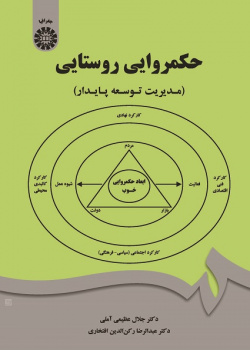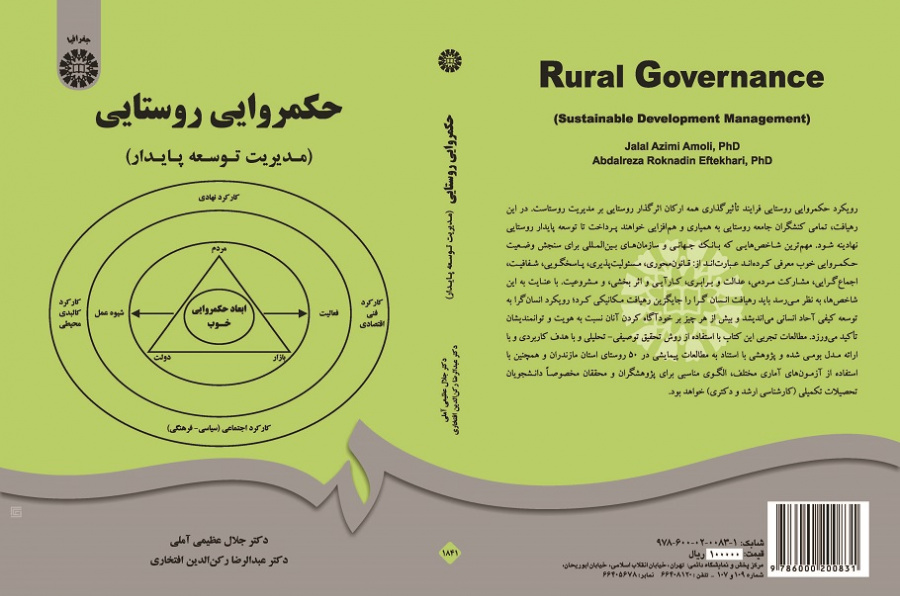

Rural Governance (Sustainable Development Management)
Rural governance approach is the process of influencing all the elements that have a role in rural governance on rural management. In this approach, all actors in the rural community will cooperate and synergize to institutionalize sustainable rural development. The most important indicators identified by the World Bank and international organizations for measuring good governance are rule of law, accountability, transparency, consensus, public participation, justice and equality, efficiency, effectiveness, and legitimacy. Considering these characteristics, it seems that the humanistic approach should be replaced by the mechanical approach. The humanistic approach thinks about the qualitative development of human beings and emphasizes, above all, the self-awareness of their identity and capabilities. Experimental studies of this book are based on a descriptive-analytical research method aimed at developing a localized research model as well as statistically backed survey studies in 50 villages of Mazandaran Province. The book can provide a suitable model for researchers, especially postgraduate and Ph.D. students.





